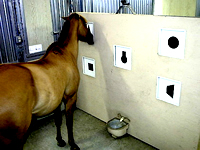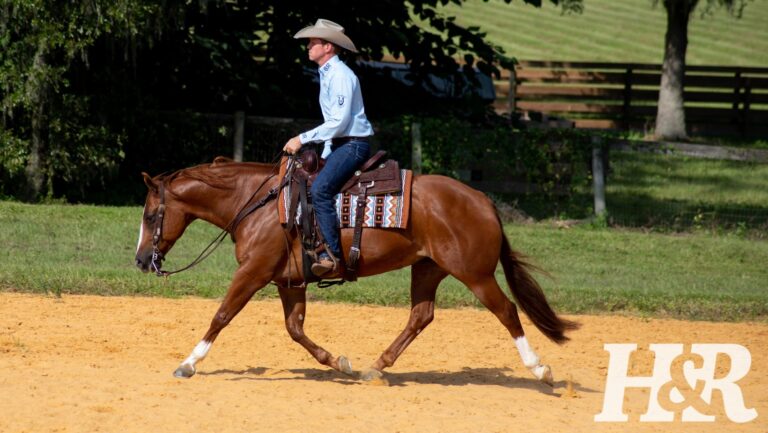
To find out more about equine emotions and responses, researchers are studying everything from anecdotes about animals in love to brain systems and chemistry in order to understand how animals’ brains are wired. Clearly, there’s a lot we don’t know about the equine brain. But Evelyn Hanggi of the Equine Research Foundation in Aptos, California, is working to understand how horses learn, and she’s upsetting some commonly held misconceptions about equine intelligence at the same time.
“We look for myths that people believe, like horses being color-blind (research shows they aren’t),” Hanggi says. “And then we test these things.”
Hanggi, whose PhD in biology focuses on animal cognition and behavior, became interested in researching equine cognition because of her own experiences with horses. “I was especially intrigued by horse behavior and how seemingly clever they were at accomplishing their goals.”
She was surprised to find very little work had been done in the field, and began developing simple tests using food as rewards. One myth she has worked on dispelling has to do with how horses see–and why they will spook at the same object from different directions.
The long-held theory is that horses lack interocular transfer — they can’t transfer information from one side of the brain to the other. But Hanggi has proven differently. “We found that horses had no trouble recognizing objects with one eye that they had previously only learned about with the other (interocular transfer),” Hanggi says. “After dispelling this myth, we still needed to find a valid reason for reverse direction spooking, and this led us to a mental rotation study — which asks whether things perceived as different, from different directions.”
Their ongoing research continues to redefine how horses learn. “Horses are not the unintelligent animals many people picture. They possess some complex cognitive skills and can solve problems involving generalization, catergorization and concept learning,” Hanggi asserts.
The Foundation has a two-pronged approach to studying equine cognition and educating the public about their findings. They publish their scientific findings in scientific journals, books and horse magazines, and they also offer learning and riding vacations and internships to the public. “Participants at the ranch assist with non-invasive cognition and learning research during part of the day, and the rest of the day is immersed in hands on horseplay. Methods are based on ERF discoveries, awareness of the equine mind, learning theory, natural horsemanship and positive reinforcement,” Hanggi explains.
To learn more about Hanggi’s research or the Equine Research Foundation, visit the ERF website at http://equineresearch.org.
This article continues a debate first discussed in the September 2003 issue of Horse & Rider.






